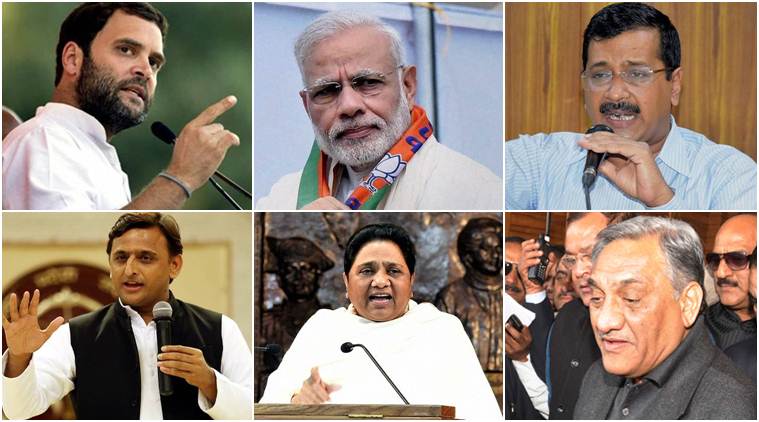Elections-2017
March 13, 2017 | Expert Insights
What will the mandate mean?
On 09 Mar 17, the last phase of the 5-state, mini general election was completed and the nation looks forward to the election result that shall be announced on 11 Mar 17. Only after all the elections were announced did the Election Commission of India, permit Media Houses to air the results of opinion and exit polls.
What Do Exit Polls Predict?
Most of the exit polls have predicted victory for BJP in four states; Uttarkhand, UP, Goa and Manipur. They were also unanimous that the Akali-BJP coalition, is set to lose the state of Punjab, to Capt. Amrinder Singh and the Congress.
Do Exit Polls Deserve Any Attention?
Last year, exit polls were wrong-footed; in predicting the victory of President Donald Trump, BEXIT and the Columbian Referendum. Even in India, exit polls have a dubious record. In Delhi – 2015, not one prediction was close to AAP winning 67 seats in the 70-member house. In Bihar – 2015, the widely-expected BJP victory saw the Mahaghatbandan winning 136 seats to BJP’s 58. In Tamil Nadu – 2016, the predicted DMK victory turned out to be a convincing victory for Jayalalithaa, whose AIDMK won 136 seats to DMK’s 98 seats. At this point of time, exit polls have very little credibility indeed.
What will a BJP Victory Mean?
The election result is widely seen as a mandate for PM Narendra Modi’s demonetization exercise. A victory for the BJP will mean that the PM’s charisma and popularity remains intact, despite the people’s hardship and questionable gains from the exercise. It will also suggest that BJP is well on course, to secure a second term in office, in the General Election of 2019.
What Will a BJP Defeat Mean?
It obviously means demonetization has hurt the electorate and they are neither ready to forgive the PM nor the BJP.
Is there a Precedent?
From 1975 to 1977, PM Indira Gandhi, unilaterally imposed a state of emergency, in the country. During the 21-month period, elections were suspended, many Gandhi opponents were imprisoned and the press was censored. Several other human right violations were reported, including a forced mass-sterilization, spearheaded by Sanjay Gandhi, the PM’s son.
However, the emergency also received support from many sections; such as social reformer Vinoba Bhave, industrialist JRD Tata, Kushwant Singh and Odisha CM Nandini Sathpathy. Others argued that Gandhi’s 20-point program, implemented during the Emergency increased, agricultural production, manufacturing activity and foreign exchange reserves. There was also reportedly, marked decline in communal violence, trains began running on time, government offices became more responsive and there was quantum improvement in civil supplies. These superficial indicators perhaps convinced Mrs. Gandhi, to order fresh elections, in Mar 1977. In the ensuing elections, both Indira Gandhi and Sanjay Gandhi lost and the Congress was reduced to just 153 seats, in the 542-member house.
Assessment
Indian elections are festival season for the public, with all political parties attempting to woo the voter. But despite the drama, the freebies and the waxing eloquent, the Indian electorate has a mind of its’ own. Within the secure confines of the election booth, the Indian voter knows, he is master of his destiny. As a nation, we are grateful to the Election Commission, for that.


